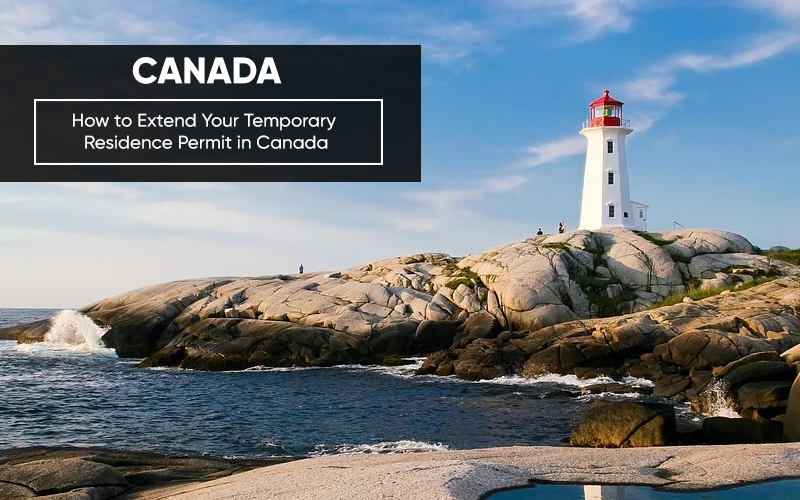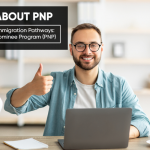Temporary Residence Permit in Canada
Visitors, international students, and temporary foreign employees in Canada have many possibilities for extending their stay.
Immigration, Refugees, and Citizenship Canada (IRCC) provide a number of options for temporary residents to remain in Canada while awaiting a permanent or temporary residency decision.
For example, if temporary residents request for a new temporary status or temporary residence permit in Canada and their papers expire before IRCC makes a decision, they are not required to leave Canada. Students, travelers, and temporary foreign employees with maintained status can continue in Canada under the same circumstances as their previous permission until they approve their new application.
Temporary residents who are seeking for permanent residency and whose documents are about to expire may be eligible for a Bridging Open Work Permit (BOWP).
While some temporary residence permits are renewable and extendable, others, such as the Post-Graduation Work Permit (PGWP), are not. However, that does not necessarily mean these workers cannot be eligible for a different work permit.
Although it is a possibility for many, applying for a Temporary Resident Visa (TRV) in Canada is typically not a good idea because it does not enable you to work or study. Those on a TRV may be eligible to apply for a Visitor Record, which allows them to stay for more than six months but does not allow them to work or study. In some situations, those who are entitled to be exempt from work permits may have the choice to stay. In this article, we look at where individuals can stay if they benefit from the following:
Work Permits
Study Permits
Post-Graduation Work Permits
Bridging Open Work Permits
Spousal Open Work Permits
Work Permits -Temporary Residence Permit in Canada
Work permits in Canada are divided into two groups: those that need a positive or neutral Labour Market Impact Assessment (LMIA) and those that do not.
The purpose of an LMIA is to show the Canadian government that there is a real need for a foreign worker to fill a vacancy. The LMIA procedure must be completed by the company, not the employee. The employer delivers the worker a copy of the confirmation letter when Employment and Development Services Canada (EDSC) issues a positive or neutral LMIA to the employer. The worker then applies to IRCC for a work permit.
In order to address recognised labour shortages, several work permit programmes provide streamlined LMIA processes. The Global Talent Stream (GTS), for example, permits companies of qualifying tech occupations to skip the LMIA's advertising requirement, reducing processing time. The normal processing time for GTS work permits is two weeks. In addition, the province of Quebec has its own list of occupations that makes LMIA processing easier.
The majority of temporary foreign employees hold work licences that are not subject to the LMIA. More than 315,000 LMIA-exempt work permits were awarded in 2021, over three times the amount of LMIA-supported work permits. In order to hire through an LMIA-exempt work permit programme, Canadian companies who have a job advertising that matches an LMIA exemption code must pay a compliance fee and submit an offer of employment through IRCC's employer portal.
From the government's standpoint, the goal of LMIA-exempt work permits is to support Canadian interests. Significant benefit and reciprocal employment are the two most popular LMIA-exempt work permit types. A foreign national whose labour will assist Canadians socially, culturally, or economically is defined as "significant benefit" in Canada. Reciprocal employment occurs when Canada and another nation reach an agreement that allows for the cross-border exchange of workers. Foreign employees can have similar options in Canada that Canadian workers can have overseas, hence the labour market impact is deemed neutral.
The LMIA-exempt category includes open work permits that allow holders to work anywhere in Canada for any employer. The category also covers work permits issued under CUSMA, CETA, or other free trade agreements with Canada. Work permits under the International Experience Canada (IEC) programme are the same. The IEC provides opportunities for adolescents from specific nations to get Canadian experience.
Study Permit
Obtaining a study permit may allow you to remain in Canada if it makes sense for your profession and financial position. During the academic year, you will be able to work part-time and full-time during specified breaks.
First, you must gain admission to a Designated Learning Institution (DLI) to obtain a study visa. You can then use your acceptance letter to apply for a study visa in Canada.
If you successfully complete your programme, you may be able to stay in Canada under the PGWP (if you have never had one before). You'll also be eligible for special avenues to permanent residency for overseas student graduates or temporary residence permit in Canada.
Post-Graduation Work Permit (PGWP)
For overseas student graduates who have finished a post-secondary degree at an approved Designated Learning Institution (DLI), the Post-Graduation Work Permit (PGWP) may be an option to stay in Canada (DLI). It is an open work permit, which means the bearer is not bound to a single employer or occupation.
Study programmes that last more than eight months but less than two years may be eligible for a PGWP that matches their duration. International students who have completed two-year or longer programmes may qualify for a three-year PGWP.
Bridging Open Work Permit (BOWP)
The Bridging Open Work Permit (BOWP) enables some permanent residence candidates or temporary residence permit in Canada to remain in Canada after their temporary status expires.
A BOWP is available for the following immigration programmes:
Federal Skilled Worker Program
Canadian Experience Class
Federal Skilled Trades Program
Provincial Nominee Program
Quebec Skilled Workers
Agri-Food Pilot Program
Foreign employees who may be qualified for the CEC have not been able to apply for permanent residency since September 2021. They can't acquire a BOWP without an IRCC Acknowledgement of Receipt (AOR). Depending on their circumstances, individuals may be eligible to apply for various work permits.
Spousal Open Work Permit (SOWP)
Spousal sponsorship may be a possibility if your spouse or common-law partner is a Canadian citizen or permanent resident. If you apply for sponsorship from inside Canada, immigration officials will consider you an in-land candidate, and you may be eligible for a Spousal Open Work Permit (SOWP), designed expressly for spouses and common-law partners of Canadians undergoing the immigration process.
Temporary residents' spouses may also be eligible for an open work permit. Temporary foreign employees must fulfil specific eligibility requirements, such as possessing a valid work permit for six months after receiving an open spousal work permit, among other things. A foreign worker must additionally fulfil one of four requirements:
National Occupational Classification (NOC) skill level of 0, A, or B;
Any occupation when accepted to an Atlantic Immigration Program (AIP) stream;
working in any occupation holding a provincial or territorial nomination from the Provincial Nominee Program (PNP); or
Holding a Quebec Selection Certificate (CSQ).
Depending on the condition of the temporary foreign worker, the applicant must satisfy other program-specific criteria.
At Immigration Experts, we guide your clients with the best possibilities of moving to Canada immigration point with regards.
To Stay Updated on Canada Immigration News, Subscribe to Immigration Experts
Fill up our Free Evaluation Form and take the initial step towards your Visa and Immigration Process. We are available for ONLINE CONSULTATION!
Contact Immigration Experts for FREE Points-Based Assessment of your profile: Drop us an email at: info@immigrationxperts.com
Give us a call at: +91-9999467686, 0120-6618011, 0120-6618123
Book your appointment with our experienced immigration counselors and solve all your immigration-related queries at the comfort of your home.
Achieve your Immigration dreams with Immigration Experts






